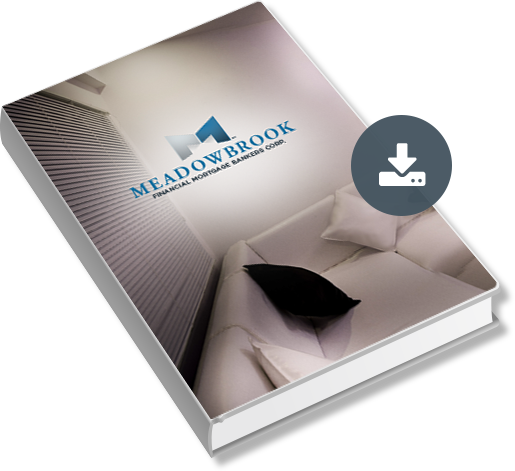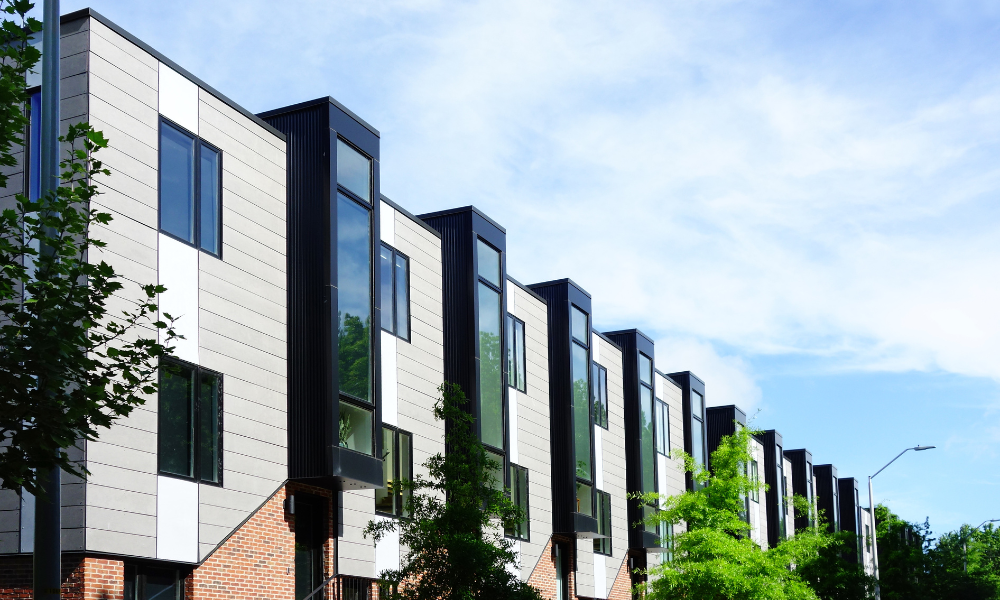Search Blog Posts by Blog Topic
What You Can Do If Your Application for a Mortgage is Denied
July 10, 2023
Finding out about a denied mortgage application is never easy, given that the person receiving the news is typically looking forward to buying a house. While lenders cannot deny mortgages based on age, gender, religion, race, marital status, or one’s nation of origin, there are other factors that might lead to a denial. As a result, taking a look at common mortgage denial reasons and understanding what you can do if a lender denies your application might help you avoid these pitfalls so you can get approved.
Mortgage Application Denials in Numbers
Data released by the Consumer Financial Protection Bureau (CFBC) indicates that the denial rate for mortgage applications in 2020 was 9.3%, which was higher than in 2019 (8.9%). It points out that FHA applications came with a denial rate of around 14.1%, whereas the number for conforming home loan applications stood at 7.6%. The denial rate for Black and Hispanic borrowers was higher when compared to non-Hispanic and Asian borrowers.
What Are the Common Reasons a Mortgage Application is Denied?
Mortgage denial reasons come in different forms and understanding them might help you get one step close to homeownership. This is because when you know what might affect your application adversely, you may implement remedial measures to increase the likelihood of success. Here are signs that indicate your mortgage might be denied.
- No/poor creditworthiness. Lenders view people with no or poor credit history as high-risk borrowers. If you fall in this bracket, you might have trouble finding a lender who would approve your mortgage application, although you may have a few options.
- High DTI ratio. Your debt-to-income (DTI) ratio highlights how much you owe in comparison to your income. A DTI of 28% or lower is ideal, although lenders typically want this number to be 36% or lower. If it’s 43% or higher, a denied mortgage application is hardly surprising.
- Problems with the home. It’s common for some types of mortgages as such FHA loans to have strict requirements surrounding the condition of the home you wish to purchase. If the home does not pass the required inspection, a denial of your application is on the cards.
- The appraised value. If the appraised value of the home you wish to buy is less than its selling price, you may expect the lender to deny your application or offer a lower-than-desired amount. In case of the latter, you have the option of paying the difference on your own.
- Job changes. if you get a promotion at work or move to a better-paying job in the same industry, it typically does not have an adverse effect on your mortgage application. However, some job changes might have a negative impact. These include switching fields, new jobs with preset termination dates, and moving from being a salaried employee to a consultant or a freelancer.
- Judgments and liens. Lenders commonly run title searches before closing. If your lender finds any unpaid judgments or federal/state tax liens linked to the home you wish to buy, you may expect it to deny your mortgage application.
- Early retirement. If you’ve retired early and fail to show you have adequate income, your lender might view you as a high-risk borrower even if you’ve already saved seemingly enough money.
- Recent credit activity. Closing a credit card account or more tends to have a negative effect on your credit utilization ratio by reducing your total available credit, which might lower your credit score. As a result, refrain from doing so before applying for a mortgage or its closing. In addition, applying for new forms of credit during this period indicates added liability to your lender, so it’s ideal that you steer clear of doing this as well.
- Student loan. A mortgage can be denied due to a student loan if its outstanding amount leads to a high DTI ratio. A history of delinquent payments toward a student loan is also a possible reason for denial.
- Source of down payment. If you plan to make your down payment through a source your lender cannot verify or by using down payment assistance a seller is willing to provide, your lender will deny your application because it’s against the rules. This also holds true for funds you may receive from any type of non-collateralized loan.
- Multiple Write-Offs. Self-employed individuals who have multiple write-offs when they file their taxes might face problems when they apply for mortgages. While you might turn to business deductions with the aim of saving taxes, lenders would look at your net income after the deductions. As a result, you need to make sure your net income is enough based on the amount you wish to borrow. If it’s not, you might want to go easy on the write-offs.
Looking to Purchase a Home on Long IslandContact Us
Mortgage Loan Denied in Underwriting
There are chances of getting denied after pre-approval for a mortgage if your lender finds a suitable cause during the underwriting process. This is because the preapproval stage mainly involves looking at your credit score, monthly income, DTI ratio, and assets. However, during the underwriting stage, lenders take a much closer look at your finances by going through your pay stubs, W-2 forms, bank statements, tax returns, and all other financial documents they might deem appropriate.
Since the underwriting stage is when a lender gets a clear picture of where you stand financially, it is possible that your application might fail to meet the cut. Besides, any significant changes in your finances from the time of preapproval to the underwriting might also lead to a denial.
What Happens if You Don’t Get Approved for a Mortgage?
If a lender denies your mortgage application, you may expect to receive a denial letter via email or regular mail. Some lenders also inform applicants of their decisions over the phone. It is common for lenders to provide the reason behind the denial, although if this is not the case with your lender, you may choose to call and find out. Once you know the reason, make sure you address it effectively before applying again.

Your Mortgage is Denied – Now What?
If a lender denies your mortgage application, know that this happens with many people. In some cases, simple technicalities can be the cause for denial, which you may rectify by providing any additional information that your lender requires. However, there are instances when you might have to explore other options.
Speak With Your Lender
The law requires that a lender should inform you of why it is denying your mortgage application. At times, lenders deny applications because of inadequate paperwork or not having access to the required information. Once you know the reason for the denial, you might be able to speak with your lender and provide the documentation it needs. In some instances, explaining your specific situation over the phone can help an underwriter reconsider the decision.
Check Your Credit Reports
If you failed to review your creditworthiness before applying for a mortgage and it is the cause for denial, you need to go through your credit reports carefully. Bear in mind that you ideally need good creditworthiness to qualify for a mortgage, and if an error in your credit report is causing your credit score to suffer, you might be able to fix it. Remember that mistakes in credit reports are not uncommon, and according to a study by Consumer Reports, 34% of consumers have at least one error on their credit reports.
If you spot an error on any of your credit reports, contact the credit bureau in question and request it to make the required correction. This process tends to take time, which means you might have to back out of your existing offer.
Looking to Purchase a Home on Long IslandContact Us
Look at Government-Backed Loans
If a lender denies your application for a conventional mortgage because of a less-than-perfect credit score or inadequate down payment, you may consider looking at what government-backed loans have to offer. These typically come with less stringent creditworthiness and down payment requirements, although you need to meet other conditions.
- USDA loans. The U.S. Department of Agriculture (USDA) works as a guarantor for these loans. You may get a USDA loan to buy a home in a rural area, a small town, or an eligible suburban area. These loans are ideal for low- and moderate-income applicants. They require no down payment.
- VA loans. The Department of Veteran Affairs guarantees these loans. You may apply for a VA loan as a military veteran, a military member on active duty, a reservist, or an eligible surviving spouse. These loans come with no down payment requirement.
- FHA loans. The Federal Housing Administration (FHA) backs these loans. You might qualify for one with a credit score as low as 500. Depending on your credit score, you may make a down payment of 3.5% or 10%,
Ask for a Lower Amount
Among the most common mortgage denial reasons is the loan amount. For example, while a lender might be unwilling to lend you $750,000, you might qualify if you seek $600,000. Remember that your income has a direct bearing on the loan amount for which you might qualify, so you need to pay due attention to this aspect. If you consider buying a more affordable home or can manage to make a larger down payment, you may consider applying for a new loan, albeit for a smaller amount.

Think Down Payment Assistance
The more money you can put toward your down payment, the lesser you need in the form of a mortgage. While this does not guarantee the approval of your next mortgage, it does increase the odds of success. Most down payment assistance programs tend to favor first-time homebuyers, but this is not always the case.
You might qualify for down payment assistance if you have low/moderate income, you don’t have poor creditworthiness, your debt-to-income (DTI) ratio is within desirable limits, and you wish to live in the house you buy.
Down payment assistance may come in the form of one-time grants, matched-savings programs, forgivable loans, and low-interest loans. Repayment terms depend on the one for which you qualify. For example, you don’t need to repay a forgivable loan if you live in the home you purchase for a predetermined time period that’s typically upward of five years.
Get a Co-Signer
If your mortgage application is denied because of poor creditworthiness or insufficient income, applying with a co-signer who has a good credit score might work well for you. This is because mortgage providers consider co-signers’ credit scores and income when making lending decisions. A co-signer’s good credit score might also result in a lower interest rate. However, finding a co-signer might not be easy, given that getting a mortgage is typically a long-term commitment.
Wait Until You Fix All Issues
If you’ve run through all your alternatives, you have no other option than to wait until you fix all the issues that are currently keeping you from becoming a homeowner. For example, if you have a less-than-desirable credit score, you need to start by getting it in order, which could take a few months, a year, or even longer. If your income is the problem, you may consider getting a second job. If you don’t have enough money to make the required down payment, you’ll need to start saving.
Conclusion
Applying for a mortgage can be a daunting task, all the more so because of the intricacies involved in the process. Often, simply not submitting a required document might result in a lender denying your application. As a result, it’s crucial that you look at the common mortgage denial reasons because this gives you the ability to increase the possibility of your application’s success.
If your mortgage is denied, start by getting in touch with the lender to determine if there’s a possibility of a reversal in the decision. If not, contact a different mortgage provider and look at the options it has to offer. If you feel you might still not qualify for a mortgage, address all possible issues before you apply again.
Ready To Get Started?
Fill out the form below and a mortgage professional will get back to you shortly.

First Time Homebuyer’s Guide
Considering homeownership but not sure where to begin? The Meadowbrook Financial Mortgage Bankers Corp. guide to home buying will make the process easy all in one packet.
Recent Articles

An In-Depth Condo Buying Guide
2 July, 2025One reason why many first-time homebuyers prefer condos over single-family homes is that they are typically more affordable and give them the means to start…

Should You Buy an Under-Construction, New Build, or…
18 June, 2025The dream of owning a home often comes with having to make an array of decisions, and perhaps none is more crucial than choosing the…

How Do Pets Influence Homebuying?
1 May, 2025Adding a furry friend to your family can bring so much joy to your life. Whether it’s a dog, cat, bunny, or other, they’re sure…


